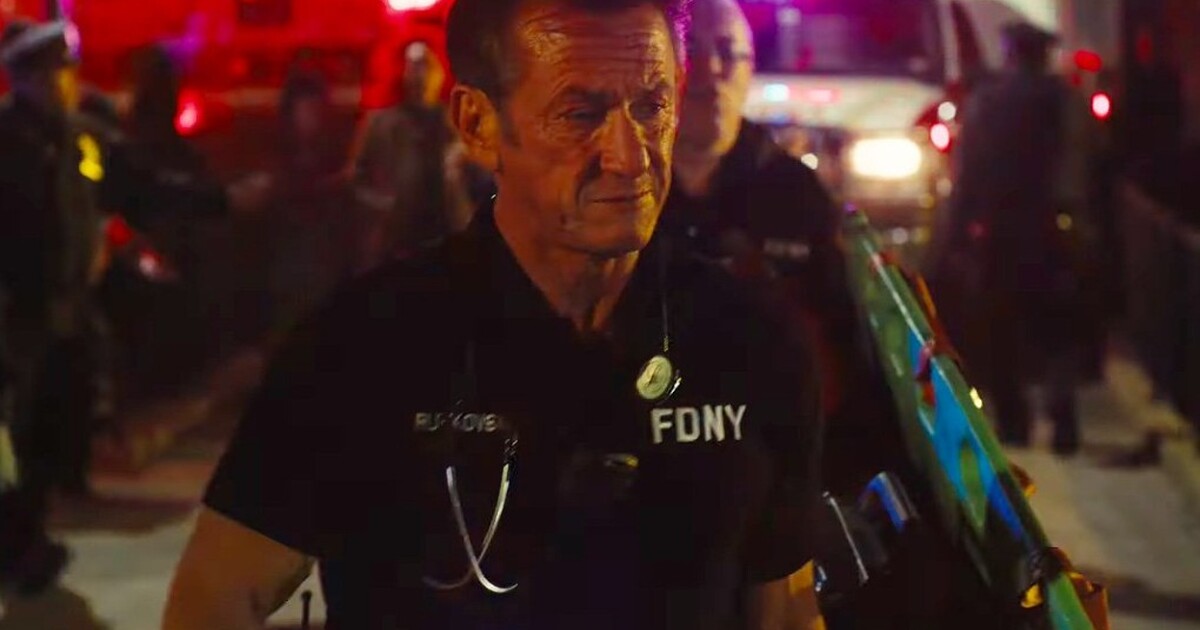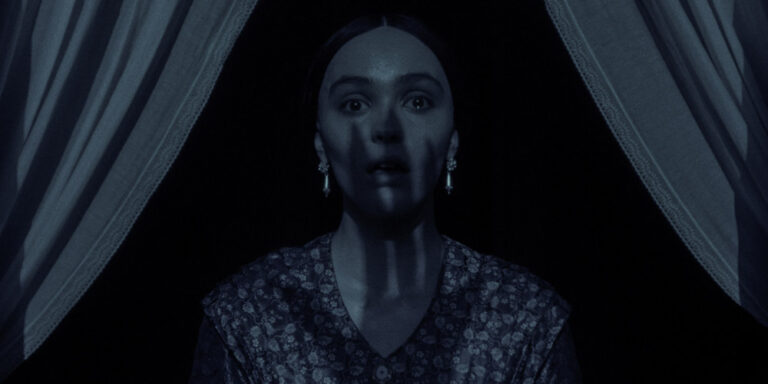![]()
Asphalt City (2024) Directed by Jean-Stéphane Sauvaire
This rough lugubrious cinematic ambulance ride is not a eulogy, much less an awareness piece, it’s all about a brusque convergence of moral skepticism and abrasive nihilism. A calculated intersection that ultimately yields a humanistic mystique and stoic rumination in both its darkest and its brightest sections. It is chaotic and tumultuous as the busy, sleepwalking nighttime NYC streets that keep Gene Rutkovsky (Sean Penn) and Ollie Cross (Tye Sheridan), two New York City Fire Department paramedics, active and wide awake. Gene is the seasoned EMT and Ollie is the fresh-faced rookie who has no inkling yet of the professional woes he’ll have to witness and endure.
Jean-Stéphane Sauvaire’s Black Flies, also known as Asphalt City, does not pursue the facile canticle of heroism, nor does it pretend to indulge in the orthodoxy of populist filmmaking, it is gritty and mean. Perhaps it is bare bones meanness, but it is the kind of elemental pessimism that concludes with its opposite philosophy. The film is an escalation of uncomfortable feelings, frantically edited right from its purposefully discombobulated opening where we first encounter Ollie’s overwhelmed but motivated countenance as he psyches himself up to deal with the emergency scenario he’s heading into. These introductory sequences – fast-paced and cinematically hostile – are tough to swallow considering that most of the cutting is incomprehensible and the juxtapositions wildly disproportionate, it’s just mayhem within the jittery framing. Don’t panic, give it time, gradually the film settles into its own anarchy and finds a thrilling narrative momentum where everything seems to happen on an intimate plane, in Ollie’s conflicted perspective.
Tye Sheridan’s poignant performance displays tremendous fearlessness in not portraying Ollie as “the character everyone would like to see”: the emotionally indestructible, empathetic, life-saving hero. Instead, he takes the commonsensical complexity of the character’s existence into dangerously fragile territory, which leads you to deduce that the filmmakers found the best route to convey the physical and mental turmoil that all paramedics experience on a daily basis not through the contextualized, collective experience itself, but through the moral breakdown of a single character. Sean Penn is a terrific contrast, but the film never judges the proceedings based on his perspective, so we are always fully cognizant that this is Ollie’s story. Sean Penn’s effectively tragic performance as Rutkovsky serves as an alarming future mirror for young Ollie. Wrinkled, fatigued and confrontational, Penn’s visage is aptly rendered as the image of pessimism and a harbinger of what awaits Ollie if he succumbs to the corrosive gloomy atmosphere surrounding his intrepid profession.
Even though Jean-Stéphane Sauvaire’s unembellished direction actually specifies the scenario as a fully-fledged plotless psychological drama – it’s mostly just a set of sequences where we see Ollie and Rutkovsky run into all sorts of emergencies – there are certain moments where its almost imperceptible storytelling signals the contrary. For instance, it is when Sean Penn’s Rutkovsky goes to visit his little daughter at her ex-partner’s apartment that the film evokes a dynamic beyond the paramedical routine. It is precisely at this deeply emotional juncture, where we get to know more about the characters, that the story comes out at its strongest as an engaging slice of humanistic pseudo-philosophy. What I am trying to say with this is that the film has its philosophical foundations firmly in place to communicate such a violent and discouraging vision of life – attention, that is not the equivalent of misanthropy, which this film has nothing to do with -, it tries to make you suffer and have a miserable time in order to reward your sacrifice with hope. Because yes, the film, despite being a non-stop suicidal exhibition of sadness, manages to transform it into something good. You only have to observe the gripping character arc that Tye Sheridan’s Ollie undergoes to be fully convinced of this.
To be a paramedic is like playing God, that is explicit in the moral ambivalences faced by each of the characters – including the most unethical of them all, played by Michael Pitt. Deciding who lives and who dies is a trial in which I don’t think anyone would want to be a judge, yet every day we have courageous, altruistic men and women who assume this bitter but essential role. Such a cosmic take on something as ordinary as death elevates the straightforward endeavor to the theological. I’m sure many in the audience were expecting something more cohesive and more set piece-oriented shot as a rapid-fire exercise in popcorn moviemaking. That’s what you have in mind when you read the synopsis, yet this is a major “fuck you” to the ethos of modern Blockbuster fare, which sometimes it’s salutary to have one from time to time.









